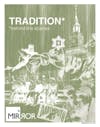
Search Results
Use the fields below to perform an advanced search of The Dartmouth's archives. This will return articles, images, and multimedia relevant to your query.
1000 items found for your search. If no results were found please broaden your search.


Watching the Ivies: Hurricane Sandy Edition


The Institute for Information Infrastructure Protection celebrated 10 years of cybersecurity research last month.

11.02.12.sports.wsoccer

11.02.12.sports.football2

11.02.12.sports.football1

11.02.12.mirror.axa

11.02.12.mirror.mudparty


Corn Sizzurp 2012-11-02
Kat and Dog 2012-11-02
Daily Debriefing
Research conducted by Dartmouth sociology professor Emily Walton demonstrates that Asian Americans have better health when they live in predominantly Asian neighborhoods with higher education levels, Dartmouth Now reported on Wednesday. Walton's research, which was published in the Journal of Health and Social Behavior, attributed this correlation to the fact that educated communities will petition for neighborhood resources to meet residents' needs. If the community is of one ethnicity, these resources will be targeted to meet the needs of that group. The relationship between health and education does not apply to Asians living in more diverse neighborhoods, according to the study.
Alumni share Vietnam memories
Lee Chilcote '64, James Laughlin III '64 and Bud McGrath '64 shared their experiences serving in Vietnam as members of the United States military with members of history professor Edward Miller's 35-student class on the Vietnam War on Thursday evening.
Halloween events aid community
Campus organizations have funneled Halloween spirit into events throughout the past week that incorporate both charitable fundraising and community outreach.
Advising pilot program sees positive response
Advising 360, a pilot program for 100 students in the Choates residential cluster, has been met with generally positive reviews from students and advisors, but some noted its overlap with the College's current advising program. Advising 360 consolidates current programs and introduces a six-term advising system and trained academic undergraduate advisors.
Consortium marks 10 years of research, growth
Altogether, around 120 faculty, undergraduates and postdoctoral students including Dartmouth computer science, sociology, Tuck School of Business and Thayer School of Engineering professors have collaborated on more than a dozen projects exploring research topics from technical analysis of process control systems to means of counteracting insider threats within organizations.
Poll finds students favor Obama
The survey, distributed to all undergraduate students through a campus-wide email on Tuesday night, found that 45 percent of respondents identified as Democrats and 20 percent identified as Republicans, while 31 percent considered themselves independents or did not align themselves with any party.
